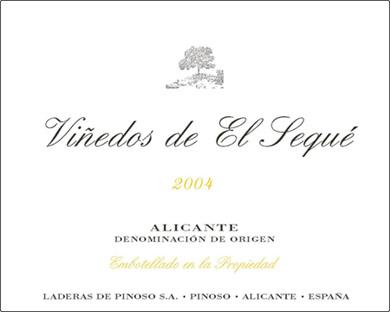2004 Alicante Red Blend
Vinedos De El Seque Viñedos de El Sequé is a captivating red blend from the esteemed Alicante region, perfect for those who appreciate the complexities of mature wines. This vintage from 2004 showcases a beautiful, deep red color that hints at its age and character. On the palate, it presents a medium-bodied profile with well-integrated tannins that offer a delightful structure. The acidity is balanced, providing a refreshing lift that complements the wine's rich fruit intensity, featuring dark berries and subtle spice notes. The dryness adds to the overall elegance, making it a versatile choice for a range of culinary pairings. This red blend is a true representation of the unique terroir of Alicante, promising a memorable tasting experience for enthusiasts and casual drinkers alike.
Vinedos De El Seque Viñedos de El Sequé is a captivating red blend from the esteemed Alicante region, perfect for those who appreciate the complexities of mature wines. This vintage from 2004 showcases a beautiful, deep red color that hints at its age and character. On the palate, it presents a medium-bodied profile with well-integrated tannins that offer a delightful structure. The acidity is balanced, providing a refreshing lift that complements the wine's rich fruit intensity, featuring dark berries and subtle spice notes. The dryness adds to the overall elegance, making it a versatile choice for a range of culinary pairings. This red blend is a true representation of the unique terroir of Alicante, promising a memorable tasting experience for enthusiasts and casual drinkers alike.




